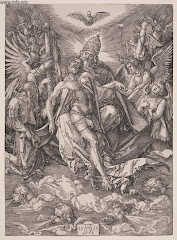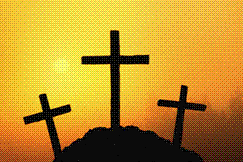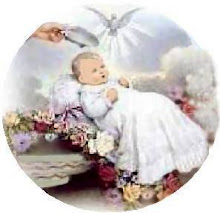We attended Carols by Candlelight at Our Shepherd Lutheran in Birmingham, MI last night. Our son attends Our Shepherd Lutheran School. (
http://www.ourshepherd.net/)
Even though it was snowy and cold, the church was filled. We listened to many different choirs sing Christmas carols and hymns for 2 hours by candlelight. It was delightful.
We sang many stanzas of Martin Luther's
From Heaven Above to Earth I Come. I have not heard or sung that hymn since about 2000.
From Heaven Above to Earth I Come
1. "From heaven above to earth I come
To bear good news to every home;
Glad tidings of great joy I bring,
Whereof I now will say and sing:
2. "To you this night is born a child
Of Mary, chosen virgin mild;
This little child, of lowly birth,
Shall be the joy of all the earth.
3. "This is the Christ, our God and Lord,
Who in all need shall aid afford;
He will Himself your Savior be
From all your sins to set you free.
4. "He will on you the gifts bestow
Prepared by God for all below,
That in His kingdom, bright and fair,
You may with us His glory share.
5. "These are the tokens ye shall mark:
The swaddling-clothes and manger dark;
There ye shall find the Infant laid
By whom the heavens and earth were made."
6. Now let us all with gladsome cheer
Go with the shepherds and draw near
To see the precious gift of God,
Who hath His own dear Son bestowed.
7. Give heed, my heart, lift up thine eyes!
What is it in yon manger lies?
Who is this child, so young and fair?
The blessed Christ-child lieth there.
8. Welcome to earth, Thou noble Guest,
Through whom the sinful world is blest!
Thou com'st to share my misery;
What thanks shall I return to Thee?
9. Ah, Lord, who hast created all,
How weak art Thou, how poor and small,
That Thou dost choose Thine infant bed
Where humble cattle lately fed!
10. Were earth a thousand times as fair,
Beset with gold and jewels rare,
It yet were far too poor to be
A narrow cradle, Lord, for Thee.
11. For velvets soft and silken stuff
Thou hast but hay and straw so rough,
Whereon Thou, King, so rich and great,
As 'twere Thy heaven, art throned in state.
12. And thus, dear Lord, it pleaseth Thee
To make this truth quite plain to me,
That all the world's wealth, honor, might,
Are naught and worthless in Thy sight.
13. Ah, dearest Jesus, holy Child,
Make Thee a bed, soft, undefiled,
Within my heart, that it may be
A quiet chamber kept for Thee.
14. My heart for very joy doth leap,
My lips no more can silence keep;
I, too, must sing with joyful tongue
That sweetest ancient cradle-song:
15. Glory to God in highest heaven,
Who unto us His Son hath given!
While angels sing with pious mirth
A glad new year to all the earth.
Notes: #85 in _The Handbook to The Lutheran Hymnal_
Text: Luke 2: 1-18
Author: Martin Luther, 1535
Tune: Vom Himmel hoch, da komm' ich her
Translated by: Catherine Winkworth, 1855, alt.
1st published in: "Geistliche Lieder" Leipzig, 1539
 What a great way to end 2007 and prepare for 2008 -- I'm learning something new. That seems to be a daily occurrence lately. For many decades I said the Nunc Dimittis at church and had no idea what it was or where came from. It came after communion. I just said it.
What a great way to end 2007 and prepare for 2008 -- I'm learning something new. That seems to be a daily occurrence lately. For many decades I said the Nunc Dimittis at church and had no idea what it was or where came from. It came after communion. I just said it.









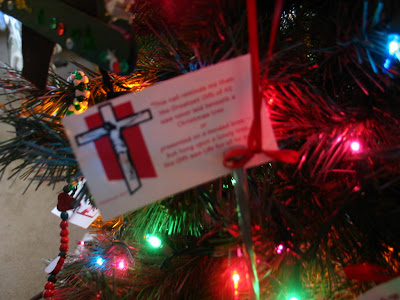





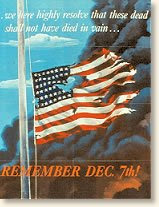












 As a Lutheran, I observe Lent. This is the 40 day period before Easter, excluding the Sundays. It is a time to feast on the Word of God.
As a Lutheran, I observe Lent. This is the 40 day period before Easter, excluding the Sundays. It is a time to feast on the Word of God.